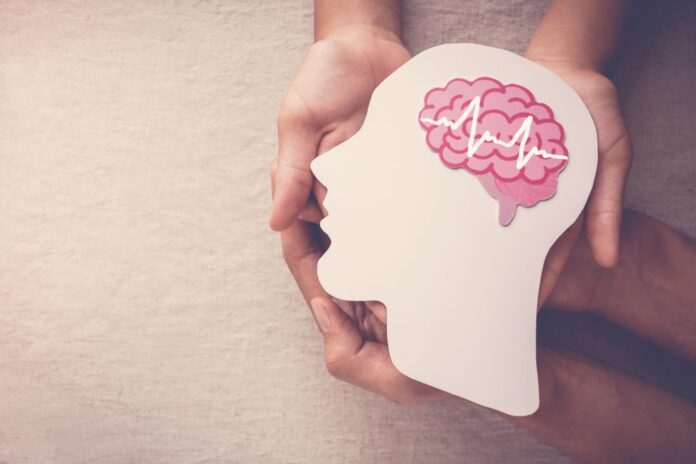In an age where mental agility and memory are increasingly important, cognitive health has become a top priority for many people. Cognitive health involves maintaining mental sharpness, focus, memory, and the overall ability to think and process information effectively. From young adults to seniors, keeping the brain healthy is crucial to leading a productive and fulfilling life.
This article explores key habits and lifestyle practices that support cognitive wellness, including diet, exercise, and mental stimulation, to help maintain brain function across all life stages.
Why Cognitive Health Matters at Every Age
Cognitive health impacts our daily lives in countless ways. Strong cognitive function helps us learn new skills, retain information, make sound decisions, and interact meaningfully with others. Mental clarity and memory retention are not only important for professional success but also for personal growth and quality of life.
As we age, cognitive health can become more vulnerable to factors such as stress, lack of sleep, poor nutrition, and even environmental toxins. By proactively managing these factors, we can protect our brains, maintain mental sharpness, and reduce the risk of age-related cognitive decline.
1. Prioritizing Quality Sleep
Sleep is one of the most important pillars of cognitive health. During sleep, the brain consolidates memories, clears out toxins, and processes information from the day. Lack of quality sleep can lead to mental fatigue, impaired concentration, and memory difficulties. Ensuring that you get 7-9 hours of restful sleep each night is crucial for maintaining brain health.
– Create a consistent bedtime routine: Going to bed and waking up at the same time each day helps regulate your sleep cycle.
– Limit screen time before bed: Reducing blue light exposure from screens can help prepare your brain for sleep and improve sleep quality.
2. Engaging in Regular Physical Activity
Exercise is known to have numerous physical benefits, but it also plays a vital role in cognitive health. Regular physical activity increases blood flow to the brain, which helps to maintain brain cells and supports neuroplasticity, the brain’s ability to adapt and grow. Activities like walking, cycling, and strength training are beneficial for keeping the mind sharp and reducing the risk of cognitive decline.
– Try combining cardio with strength training: A combination of both has been shown to have a positive impact on brain health.
– Incorporate movement into daily life: Even small amounts of movement, such as taking the stairs or going for a short walk, can contribute to cognitive wellness.
3. Following a Brain-Healthy Diet
What we eat has a profound impact on brain function. Nutrient-dense foods that contain vitamins, antioxidants, and healthy fats are essential for cognitive health. Foods that are particularly beneficial include:
– Leafy greens and vegetables: Rich in antioxidants and vitamins that protect brain cells from damage.
– Fatty fish and nuts: High in omega-3 fatty acids, which support brain structure and function.
– Whole grains and legumes: Complex carbohydrates provide a steady source of glucose, which is essential fuel for the brain.
Eating a balanced diet filled with these foods can help support memory, mental clarity, and overall brain function, creating a strong foundation for cognitive wellness.
4. Reducing Stress and Practicing Mindfulness
Chronic stress can have negative effects on both physical and mental health. High stress levels increase cortisol, a hormone that, in excess, can impair memory and reduce the brain’s ability to store information. Mindfulness practices such as meditation, deep breathing, and yoga help manage stress and improve mental focus.
– Practice mindfulness meditation: Even a few minutes of daily mindfulness practice can reduce stress and improve emotional resilience.
– Take time for activities you enjoy: Hobbies, socializing, and spending time in nature are great ways to reduce stress and support cognitive wellness.
5. Staying Socially and Mentally Active
Maintaining social connections and engaging in mentally stimulating activities are essential for cognitive health. Regular social interaction and mental challenges stimulate the brain, keeping it active and resilient. Activities that encourage problem-solving, learning, and memory retention are particularly beneficial.
– Participate in social activities: Regularly connecting with friends and family or joining community groups keeps the mind engaged.
– Challenge your brain with new skills: Learning a new language, playing an instrument, or trying brain games like Sudoku or crosswords can help strengthen memory and cognitive flexibility.
6. Exploring Advanced Cognitive Health Options
For those looking to take their cognitive health to the next level, advanced treatments and specialized therapies are available. Clinics such as Aviv Clinics offer innovative approaches designed to enhance cognitive performance and support brain health. These facilities provide comprehensive cognitive health programs that incorporate cutting-edge therapies, personalized protocols, and the latest scientific advancements.
Whether you’re looking to improve mental clarity, boost memory, or simply keep your brain functioning at its best, seeking expert guidance can be beneficial. Clinics dedicated to cognitive health often combine lifestyle recommendations with medical-grade treatments tailored to individual needs.
Conclusion: Embracing Cognitive Wellness for Life
Supporting cognitive health involves a balanced approach, integrating sleep, physical activity, a nutritious diet, and mental engagement. By incorporating these practices into your daily routine, you can maintain mental clarity, reduce the risk of cognitive decline, and improve your quality of life at any age. With a proactive mindset and, when necessary, guidance from cognitive health specialists, lifelong mental wellness is within reach.
Did you find this helpful? Check out our other helpful articles on our website.
Read Also
- Modern Approaches to Adolescent Mental Health Treatment for Lasting RecoveryWith increasing numbers of teens experiencing emotional and behavioral health concerns, adolescent mental health treatment has become more essential than ever. Conditions such as anxiety, depression, trauma and mood instability are on the rise, and effective support must evolve with these growing needs. Today’s treatment models blend evidence-based therapy with flexible access and holistic care, giving… Read more: Modern Approaches to Adolescent Mental Health Treatment for Lasting Recovery
- How to Find a 5-Star Dentist Near YouChoosing a dentist is more than just finding someone who can clean your teeth. It’s about selecting a trusted partner in your long-term oral health. A 5-star dentist not only provides excellent clinical care but also delivers a positive patient experience, from the moment you walk in until the moment you leave. Whether you’re new… Read more: How to Find a 5-Star Dentist Near You
- Your Easy-Peasy Guide to Brewing Amazing MatchaHey there! So, you’ve heard all the buzz about matcha – that vibrant green powder that’s not just pretty but packed with good stuff? It can seem a little fancy and intimidating at first, but trust me, making a delicious cup at home is simpler than you think. Forget complicated ceremonies for now; let’s just… Read more: Your Easy-Peasy Guide to Brewing Amazing Matcha
- Embracing Holistic Wellness: Insights from a Lansing, MI Health CenterReframing Health: Moving Beyond Symptom Management Treating only symptoms often offers quick relief, yet long-term results stay out of reach. When care zeroes in on isolated complaints, the bigger picture, such as stress, behavior, or lifestyle, often gets missed. Research shows that whole-person care, which looks at physical, emotional, and environmental factors, yields better outcomes… Read more: Embracing Holistic Wellness: Insights from a Lansing, MI Health Center
- VO₂ Max Testing Explained: What It Is & Why It Matters for Your HealthVO₂ max sounds like a term reserved for elite athletes, but it’s among the most accurate measures of your lifetime and general condition. Moreover, it goes beyond performance. Monitoring your VO₂ max will help you to ascertain your body’s capacity to control stress, its oxygen consumption efficiency, and your internal ageing process. If you have… Read more: VO₂ Max Testing Explained: What It Is & Why It Matters for Your Health
- So, what exactly is matcha?Think of matcha as green tea turned up to eleven! Instead of steeping leaves and tossing them out, matcha is made by grinding whole green tea leaves into this super-fine, vibrant green powder. You whisk it right into hot water (or milk!), meaning you’re drinking the entire leaf. That’s why folks say you get way… Read more: So, what exactly is matcha?
- How to Tell When It’s Time for Professional Senior Care SupportCaring for an aging loved one is a journey filled with love, patience, and difficult decisions. One of the toughest choices families face is knowing when it’s time to seek extra help. In this article, trusted Los Angeles caregivers for seniors explore the signs that it might be time to bring in professional support, not… Read more: How to Tell When It’s Time for Professional Senior Care Support
- Reporting a Work Injury: What Deadlines You Need to KnowAfter a workplace injury, time isn’t always on your side. Many employees aren’t aware that there are strict deadlines for reporting a work-related injury, and missing that window can put your entire claim at risk. Whether your injury was sudden or developed gradually over time, it’s essential to act quickly and follow the proper steps.… Read more: Reporting a Work Injury: What Deadlines You Need to Know









